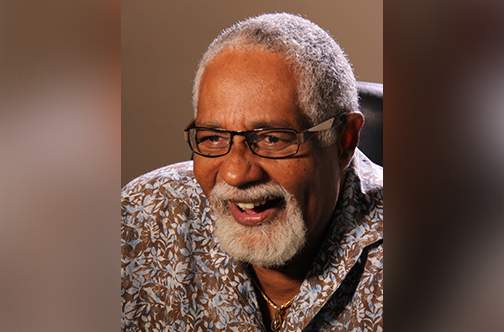Hoyte of The Nation (1941-2019)
Editorial, Barbados TODAY
May 14, 2019
It is not a safe idea in small, independent developing nations such as ours: the notion of a free press.
In what has long been considered the freest black nation on earth, Harold Hoyte might not have made that idea any safer – that remains the people’s job. What he did was make it safe for others to believe in that dangerous idea and to consider it essential, relevant and non-negotiable in a democracy.
What he also made safe was an environment in which young, independent-minded, creative adults could practise their craft without having to peer over their shoulders constantly at a looming phalanx of ministers, merchants, lawyers and sycophants baying for their blood if not their pound of flesh.
This is the mission of a visionary; such a man was Harold Hoyte, founder of the Nation Newspapers, without whom it is well-nigh impossible to conjure up additional upstart startups in a democratic nation’s independent media. Like ours.
Competitive, robust journalism is a difficult enterprise on a small island; serious business to be sure. And yet in “Har’Hoyte”, as Nation columnist and literary giant, Austin Tom Clarke, dubbed him, there was a rare absence of guile, cynicism, pessimism, mean-spiritedness, fear and loathing, a common affliction in the media fraternity.
He was Barbadian and Caribbean journalism’s Happy Warrior, rigorously pursuing standards of fact-seeking, truth-telling and commentary, with forthrightness, candour and integrity while doing so with disarming, near-Falstaff mirth clothed in a falsetto voice and a quintessentially Bajan brogue.
This unerring humanity and sense of empathy might seem unlikely products of the school of journalism from which he considered himself proud to have graduated – the rum shops of Barbados. Before they became quaint picture postcards of alcoholic stupefaction, the rum shop was the common man’s temple and parliament, school and cauldron, the background for a tableau of the full gamut of Barbados emotions and experience.
It was this experience of ordinary Bajan folk at their heights and depths that propelled him to found, in 1973, a newspaper for the common man and woman in a young independent nation.
Hoyte enlisted some of the finest minds and the most irrepressible and irreverent souls to take up a reporter’s notebook or camera or green editor’s pen – first editor Carl Moore; star scribes Al Gilkes, Charles Harding, Albert Brandford, Manny Martindale, Tony Vanderpool, Tony Cozier, and John Wickham, to name only a few. But there were other bright young folk who made the paper readable, enjoyable and desirable – Ridley Greene, Robin Jarvis, Winston Pop Walker, Adonijah, Glyne Murray, Dawn Morgan, John Boyce, Roy Morris and Roxanne Gibbs (now Brancker).
Hoyte’s Nation gave us our first major political cartoonist, Winston Jordan, father of the irrepressible school kid with the pronounced overbite, Jones, and Bajan Bellylaugh.
Like the maestro of an orchestra, he balanced their unique, occasionally discordant voices and egos and created symphonic prose, writing Barbadian, Caribbean and World people and things – oil crisis, politicians’ privileged petrol pump, Grenada, Union Island, apartheid South Africa, countless general elections, madcap insurgent Sydney Burnett-Alleyne, fugitives, volcanoes, hurricanes, economic boom and bust – history on the run.
“This paper was not created to make anybody rich,” Hoyte said, summing up the Spirit of St Mary’s Row, the humble origins of a great paper when editor and reporter alike handed out copies of the early Friday editions from the one-door shop that was The Nation in 1973. It helped make our national life rich.
Hoyte was both entrepreneur and auteur, who made the media business into a business, spawning competitors and content, all for the greater good of the Barbadian public.
We are confident that history will offer a fair, honest, wholly non-partisan assessment that Harold Hoyte elevated the craft and business of Barbadian journalism, enriched Barbadian life beyond measure – literally taught Bajans on how to be a Bajan – and nourished a fledgeling island nation on democracy – with barrel upon barrel of ink.
Both strident critic and grieving supporter in equal measure owe a debt of gratitude for a man who so loved a nation he created a paper and called it one.
Requiescat in pace.
